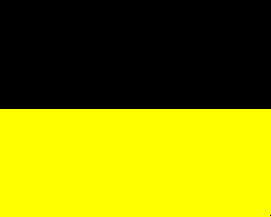Ritter von Zlóta Lipa



Goglia held the rank of FML when he attained divisional command shortly after the Battle of Limanowa in December 1914, replacing FML Karl Edler von Rebracha. He held this position until May 1915, when Goglia succeeded FZM Paul Puhallo von Brlog as commander of the V. Corps, a responsibility he held for a considerable period of time. His divisional command was taken over by FML Theodor Hordt. Goglia managed to hold his appointment all the way to March 1918, when he was succeeded by GdI Karl Freiherr von Lukas.
FZM Goglia was appointed to command the XXIV. Corps in July 1918, thus replacing FML Ludwig Goiginger. This lasted only a month, and Goglia was replaced by GdI Emmerich Hadfy von Livno. In September 1918, Goglia was assigned the command of the new Belluno Army, which suffered a significant defeat at Vittorio Veneto on 24 October 1918.
GWS, 3/02
Immediately preceding the Battles for the Carpathians
III. Armee, General der Infanterie Boroevic von Bojna
Puhallo Group, V. Korps, Feldzeugmeister Puhallo von Brlog
XXXIII. inf. div., Feldmarschalleutnant Goglia
Immediately preceding the Dunajec offensive
II. Armee, Gen. d. Kav. Eduard von Böhm-Ermolli
V. Korps., Feldzeugsmeister v. Puhallo
33. inf. div., Feldmlt. Goglia
65. inf. brig., Genmj. Frh. v. Dürfeld
66. inf. brig., Genmj. Lieb
33. field art. brig., Oberst Kaufmann
Immediately following the summer offensive against Russia
II. Armee, General der Kavallerie von Böhm-Ermolli
V. Korps, Feldmlt. Goglia
XXXIII. inf. div., Feldmlt. Hordt
XXXIV. inf div., Generalmajor von Birkenhain
XIV. inf. div., Feldmlt. von Csicserics
XLIII. Schützen div., Genmj. von Jordan-Rozwadowski
Immediately preceding the Brussilov Offensive
Böhm-Ermolli Group, Generaloberst von Böhm-Ermolli
V. Korps, Feldmlt. Goglia
XXXI. inf. div., Genmj. Lieb
Goglia's Corps sat across from the Russian VII. Corps in the Russian XI. Army. This force was part of the general movement across the whole Eastern Front. His Corps was not on the receiving end of the main thrust of Brussilov's Offensive, but the pressure on Kosak's Corps on his left caused Goglia to give some ground and some men as the front began to tear. Following reorganisation in July 1916, Goglia's Corps swapped positions with the IV. Corps of Schmidt von Georgenegg. The arrival of reinforcements from the Tirol allowed Goglia's Corps to have enough strength for a counter-offensive by Böhm-Ermolli's II. Army.
GWS, 10/01
Immediately following the defeat of Roumania by the Quadruple Alliance
II. Armee, Generaloberst von Böhm-Ermolli
V. Korps, Feldmlt. von Goglia
XXXI. inf. div., Genmj. Lieb
XXVII. inf. div., Genmj. Kosak
IV. kav. div., Genmj. Berndt
Orders of Battle: Volhynian Front, July 1917
Immediately preceding Brussilov's second offensive (Kerensky offensive)
II. Armee, Generaloberst von Böhm-Ermolli
V. K.u.K. Korps, Feldz. von Goglia
XII. Deutsch Landswehr div., Genmj. Drabich-Wächter
XVII. inf. div., Feldmlt. Kosak
IV. kav. div., Genmj. Berndt
Following the Paive Offensive initiated by the Archduke Josef in June 1918, there was little forward movement owing to the wide dispersal of troops. General Conrad's forces attacked a week later from the Tirol, but with little movement. The sector between these two groups was reorganised in July 1918, and was established as the Belluno Army. General Goglia was assigned to command this sector, which he did until the Battle of Vittorio Veneto broke through the juncture between his army and that of Army Group Boroevic. Shortly thereafter, Kaiser Karl asked for an armistice.
GWS, 2/01

